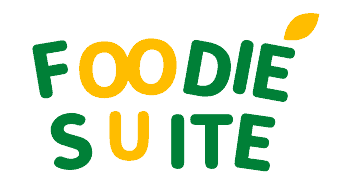World food stamps corona-virus (COVID-19)

The coronavirus threatens millions of people already in need of support due to food insecurity, malnutrition, the impacts of conflict, climate change, and other disasters.
Food stamps corona-virus
The World Food Stamps coronavirus is working around the clock to keep food aid programs providing life-saving food to 87 million people.
Firstly, Mozambique
At the Resettlement Center in Savan, in Dondo District, Sofala Prefecture, WFP is assisting 265 families affected by Cyclone Idai, about 1,325 people used electronic vouchers to buy food, provided through
the program’s SCOPE system. Each family receives a monthly food ration containing 40 kg of rice and cornflour.
And 9 kg of beans; 4 liters of vegetable oil and a kilogram of salt.
Vouchers are replaced with food packages at the point of distribution through a retailer contracted with.
In Mozambique, the World Food Stamps coronavirus has initiated the development and implementation of plans to
reorganize and adapt food distributions to protect WFP staff and food assistance program participants.
The beneficiaries are divided into small groups and asked to keep a distance of one and a half meters between them
while lining up to collect their food rations. Handwashing units have been installed at food distribution sites, and personal protective equipment has been provided to staff. The local communities receive comprehensive instructions about the emerging coronavirus epidemic (COVID-19) and the preventive measures that must be taken.

Secondly, The Islamic Republic of Iran
The World Food Program provides food aid to more than 30,000 people in Iran, most of them refugees from
Afghanistan. The women pictured in the photos below are refugee women whose workshop worked to train as a
dressmaker in Sarvestan, Fars Province, producing urgent orders when asked to sew face masks.
There are nine such concerns across Iran, which is one of the countries worst affected by the coronavirus pandemic.
Last month, the World Food Stamps Coronavirus received the largest single grant from Japan to support its operations in Iran, with US $ 7 million.
Sixty percent of the contribution will be used to purchase a three-month supply of PPE for more than 5,000 employees and volunteers of the Iranian Red Crescent Society responsible for screening people at the city’s entry points. The remaining 40 percent will go to support 31,000 Afghan and Iraqi refugees living in settlements across the country.
Thirdly, Food stamps coronavirus From Brindisi to Beijing
From Brindisi, located on the southern tip of the coast overlooking the Adriatic Sea from Italy, the United Nations
Humanitarian Response Depot – one of six similar warehouses worldwide run by the World Food Program – sent
safety equipment to Wuhan, via Beijing, in a month. Last February. So He did not expect at the time that Italy itself
would become a hotspot for the Corona epidemic. So The photos below show face masks, goggles, and other medications.
The materials that are transported on board a plane bound for Beijing, photos provided by the Italian agency
to Development Cooperation, and the Chinese community in Italy.
Fourthly, Food stamps corona-virus Kenya
In the Kakuma and Dadaab refugee camps in Kenya, the World Food Program provides food to more than 400,000 people every month. So The picture above shows, that a humanitarian worker wearing protective gear verifies the identity
of one refugee receiving food assistance in Kakuma, using a barcode scanner the use of fingerprints and iris scans has now been suspended due to the risk of infection spreading.
Food stamps coronavirus Afghanistan
Thousands of families across Afghanistan do not know where to get their next meal – authorities have ordered people to stay home and close borders to curb the spread of the new coronavirus. So The World Food Program continues to
assist food-insecure families across the country at this critical time while working to protect people receiving food assistance from the World Food Program, its partners, and staff.
Read More: Adele diet…Weight loss story in 3 weeks
food stamps corona-virus Zimbabwe
the World Food Program is implementing risk reduction measures at food distribution points in response to the novel coronavirus. The program has increased the number of distribution points to reduce overcrowding, distributed protective vests and health and safety materials to field staff, installed hand-washing facilities, and is working to ensure that distances are maintained between individuals. So The World Food Program
and its partners launched a campaign to disseminate important health, safety, and hygiene information via SMS, radio, and mini-meetings in local communities.
So Social distancing (maintaining a safe distance between individuals) is now the norm at all food distribution points
in Zimbabwe. People line up in groups of five, spaced wide apart, to get their monthly nutritional benefits from cornmeal, peas, and vegetable oil. So This food is a lifesaver for millions of Zimbabweans who are currently living in the height of the hunger season.
WFP IT technicians distributed hand-held devices to all field sites so that program partners could scan the SCOPE card remotely and people could be verified from afar and without approaching.
So We are making sure everyone is washing their hands, since if we don’t follow hygiene habits we will perish, ”said
Gloria Camodimita, a village health worker from the Zimbabwean government. So “ We are present in all WFP food distributions now – spreading information to prevent the spread of the virus. All of them, and there will be no future for Zimbabwe.
Finally, Food stamps coronavirus Syria
In Deir Hafer, Aleppo Governorate, the World Food Program is working in cooperation with a partner organization,
Read More: vegan lifestyle…Practical tips for starting a vegan lifestyle
So the Syrian Arab Red Crescent, to distribute foodstuffs to the neediest groups and to ensure that families are aware of the new Corona epidemic (COVID-19) and how they can stay safe. Deir Hafer is located 60 km from Aleppo and 12 km from the nearest market, so the 800 people who live here depend heavily on food aid provided by the World Food Program to meet their daily needs.





